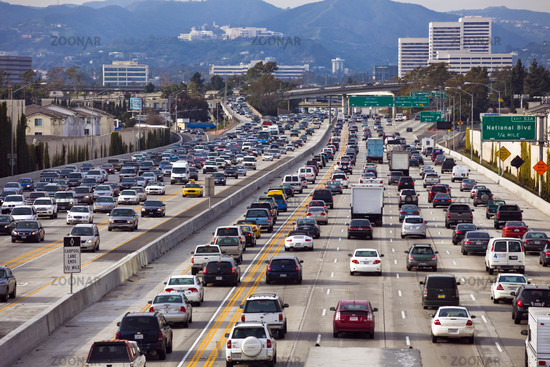 Decades of traffic data across the United States shows that adding new road capacity doesn’t actually improve congestion. The latest example of this is the widening of Los Angeles’ I-405 freeway, which was completed in May 2014 after five years of construction and a cost of over $1 billion.
Decades of traffic data across the United States shows that adding new road capacity doesn’t actually improve congestion. The latest example of this is the widening of Los Angeles’ I-405 freeway, which was completed in May 2014 after five years of construction and a cost of over $1 billion.
“The data shows that traffic is moving slightly slower now on 405 than before the widening,” says Matthew Turner, a Brown University economist, in 405 Commutes Now a Minute Worse Than Before Carpool Lane.
The main reason, Turner has found, is simple: adding road capacity spurs people to drive more miles, either by taking more trips by car or taking longer trips than they otherwise would have. He and University of Pennsylvania economist Gilles Duranton call this the “fundamental rule” of road congestion (The Fundamental Law of Road Congestion: Evidence from US Cities) adding road capacity just increases the total number of miles traveled by all vehicles.
In an influential 2011 paper, the two looked at the total capacity of highways in each metropolitan area in the US and compared it with the total number of vehicle miles traveled. They found a one-to-one correlation: the more highway capacity a metro area had, the more miles its vehicles traveled on them. A 10 percent increase in capacity, for instance, meant a 10 percent increase in vehicle miles, on average. To access that paper, click here.
